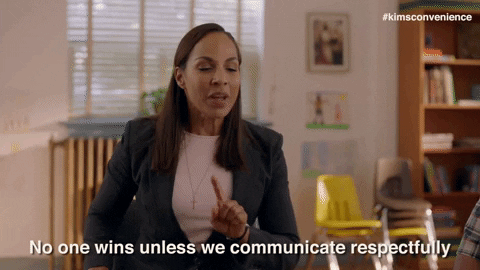7 tips for fighting better & healthier during this time

While the lockdown is beginning to ease up in certain cities, things are certainly not "back to normal." If the lockdown has been putting a little stress on your relationship, you’re not alone. Hell, if it’s putting a truckload of stress on your relationship, you’re not alone. At best, it’s nice to get some time cocooned with your partner. At worst, it’s a pressure-cooker filled with fighting over Netflix and fire and all of their annoying habits miraculously happening all at once, all the time. It’s totally normal to find yourself being a little more prickly — or even just straight-up fighting more than you usually do.
The important thing isn’t how much you're fighting — the important thing is how you do it. Because fighting can be healthy, if you do it correctly and approach it as a team. Yelling, shouting, being cruel and vindictive — that kind of behavior is never OK. But just disagreeing or rubbing each other up the wrong way? That’s not something to worry about. In fact, being able to disagree shows that you’re comfortable enough with each other to assert yourselves — it’s the couples who claim they don’t fight at all that I’m always suspicious of.
So how do you fight better and healthier? It all comes down to being in the right headspace and making each other feel heard. Here’s what you need to remember.
1. Look at it as a learning opportunity
Firstly, fighting isn’t the end of the world. In fact, when you can disagree in a healthy, responsible way you can actually learn a huge amount about each other — and it can be great for your relationship. Especially right now, when you’re probably spending too much time together and tensions are running high, know that you’re going to have spats from time to time. So when they come up, don’t panic or catastrophize — remember that it’s totally normal and focus on addressing the issue and trying to find a deeper understanding.
2. Stop to take a breath
This is especially true if you or your partner tends to have a short fuse — if you’re disagreeing, if you’re getting on each other’s nerves, if one of you has snapped, just stop. Take a pause, take a breath and dive into the issue when you both can communicate respectfully.

3. Ask questions
Often, the thing that you’re fighting about isn’t really the thing that you’re fighting about. So don’t be afraid to dive into the bigger issue. Make sure you don’t get aggressive or accusatory (screaming, “What is this really about!?” is rarely helpful). Try to gently ask what they’re feeling, what’s bothering them, and about any larger behavior patterns you’ve noticed.
4. Listen actively
If you ask the question, you have to really listen to the answer. Sometimes when we fight it can feel like we’re both just waiting to get our rant in — like we’re talking at each other, rather than to each other. So make sure that you’re actively listening and taking in what your partner is saying. Not only will it make them feel more supported and acknowledged, but it will also help you find common ground faster.
5. Use “I...” statements
It shouldn't be a one-sided conversation — as much as you need to listen, you should also be able to air out any issues you’re having. But when you do so, try to focus on “I...” statements. It’s really old, slightly boring advice — in fact, you may have heard it before. But it’s so, so true.
Saying, “You’ve been slacking on housework” is a lot more inflammatory than saying, “I feel like I’ve taken on too much and not getting the help I need”. Saying, “You were really awful the other night” is going to be more damaging than saying, “I really felt hurt by what you said when we were cooking”. If you frame it in terms of how you feel, it’s a better jumping-off point for a real conversation.

6. Stick it out
You know how frustrating it is when someone walks out of the room in the middle of an argument? Yeah — don’t be that guy. If you start something, make sure you finish it. You don’t need to resolve every issue, because some problems take a lot of time, but you should reach a place where you both feel like you’ve said your piece and can move forward — even if you’re only taking baby steps.
7. Follow up
Sorry, but the work isn’t done yet. Even after the fight is resolved, it’s important to check-in again. It doesn’t have to be a huge conversation, but just circling back with your partner to make sure that you’re both still feeling better and like things are improving is crucial. Communication isn’t a finite thing — you have to keep it going.
When you’re living on top of each other, it’s easy for fights to crawl out of the woodwork. It may be old, underlying issues making their way to the surface — or it might be that those little annoyances just feel magnified. Either way, it’s totally fine to disagree. And if you do it in a healthy, respectful way, you might even make your relationship stronger in the long run.




